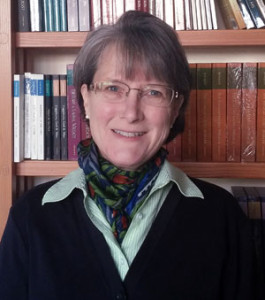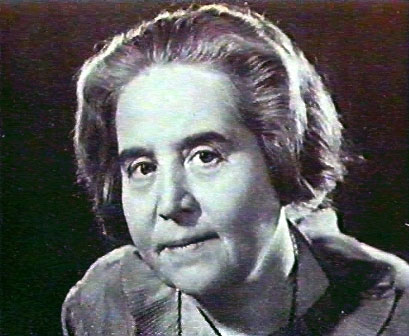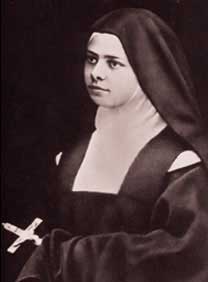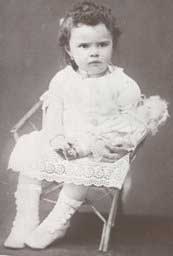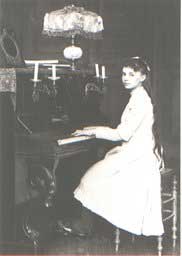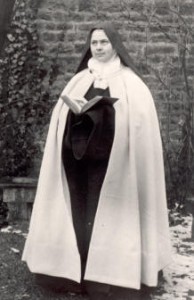Podcast: Play in new window | Download (Duration: 28:09 — 19.4MB) | Embed
Subscribe: Apple Podcasts | Spotify | Amazon Music | Android | Pandora | iHeartRadio | JioSaavn | Podchaser | Gaana | Podcast Index | Email | TuneIn | Deezer | Anghami | RSS | More

Episode 19 – “Heaven in Faith” Day 10 Prayer 1 – “If you knew the gift of God”
Dr. Anthony Lilles and Kris McGregor reflect on the teachings of Elizabeth, emphasizing the importance of not returning to “life as normal” after the retreat but instead allowing it to initiate a new beginning marked by a deeper connection with God by using the example of Mary, highlighting her profound surrender to God’s will and her unwavering trust, even in the face of uncertainty and challenges.
Through St. Elizabeth’s writings, Dr. Lilles explores the idea that true devotion to Christ is not an escape from responsibilities or difficulties but rather an empowerment to face them with grace and love. Mary’s life becomes a model for interior souls who seek to nurture the presence of God within them and radiate His love outwardly, even in the midst of daily tasks and challenges.
With the necessity of humility and trust in the spiritual journey, contrasting it with the tendency to manipulate spirituality for personal gain or control. As well as the importance of embracing God’s presence fully, allowing it to transform one’s life and perspective, leading to a deeper understanding of God’s love and a willingness to surrender completely to His will; embracing a contemplative way of life, rooted in prayer and trust in God, which leads to a profound transformation of the self and enables one to become a beacon of God’s love and compassion for others.

From “Heaven in Faith: Day 10 Prayer 1”:
“Si scires donum Dei. . . .” “If you knew the gift of God,” Christ said one evening to the Samaritan woman. But what is this gift of God if not Himself? And, the beloved disciple tells us: “He came to His own and His own did not accept Him.” St. John the Baptist could still say to many souls these words of reproach: “There is one in the midst of you, ‘in you,’ whom you do not know.”
“If you knew the gift of God. . . .” There is one who knew this gift of God, one who did not lose one particle of it, one who was so pure, so luminous that she seemed to be the Light itself: “Speculum justitiae.” One whose life was so simple, so lost in God that there is hardly anything we can say about it.
“Virgo fidelis”: that is, Faithful Virgin, “who kept all these things in her heart.” She remained so little, so recollected in God’s presence, in the seclusion of the temple, that she drew down upon herself the delight of the Holy Trinity: “Because He has looked upon the lowliness of His servant, henceforth all generations shall call me blessed!” The Father bending down to this beautiful creature, who was so unaware of her own beauty, willed that she be the Mother in time of Him whose Father He is in eternity. Then the Spirit of love who presides over all of God’s works came upon her; the Virgin said her fiat: “Behold the servant of the Lord, be it done to me according to Your word,” and the greatest of mysteries was accomplished. By the descent of the Word in her, Mary became forever God’s prey.
It seems to me that the attitude of the Virgin during the months that elapsed between the Annunciation and the Nativity is the model for interior souls, those whom God has chosen to live within, in the depths of the bottomless abyss. In what peace, in what recollection Mary lent herself to everything she did! How even the most trivial things were divinized by her! For through it all the Virgin remained the adorer of the gift of God! This did not prevent her from spending herself outwardly when it was a matter of charity; the Gospel tells us that Mary went in haste to the mountains of Judea to visit her cousin Elizabeth. Never did the ineffable vision that she contemplated within herself in any way diminish her outward charity. For, a pious author says, if contemplation “continues towards praise and towards the eternity of its Lord, it possesses unity and will not lose it. If an order from Heaven arrives, contemplation turns towards men, sympathizes with their needs, is inclined towards all their miseries; it must cry and be fruitful. It illuminates like fire, and like it, it burns, absorbs and devours, lifting up to Heaven what it has devoured. And when it has finished its work here below, it rises, burning with its fire, and takes up again the road on high.”
Elizabeth of the Trinity. The Complete Works of Elizabeth of the Trinity, vol. 1 (featuring a General Introduction and Major Spiritual Writings) (Elizabeth of the Trinity Complete Work) (pp. 163-165). ICS Publications. Kindle Edition.
Discerning Hearts Reflection Questions
- Embracing Transformation: How can we ensure that our encounters with God, whether through retreats or personal prayer, lead to genuine transformation rather than simply returning to “life as normal”?
- Surrendering to God’s Will: Reflecting on Mary’s example, how can we cultivate a deeper trust in God’s plan for our lives, even when faced with uncertainty and challenges?
- Authentic Devotion: In what ways do we sometimes manipulate spirituality for personal gain or control? How can we ensure that our devotion to Christ remains genuine and rooted in humility?
- Living Contemplatively: How can we incorporate a contemplative approach to our daily lives, ensuring that prayer and trust in God inform our actions and interactions with others?
- Becoming Beacons of God’s Love: Reflecting on the priest’s example, how can we surrender ourselves completely to God’s will, allowing His love to transform us into instruments of His compassion and grace for others?
We would like to thank Miriam Gutierrez for providing “the voice” of St. Elizabeth for this series
For other episodes in the series visit the Discerning Hearts page for Dr. Anthony Lilles
Anthony Lilles, S.T.D., has served the Church and assisted in the formation of clergy and seminarians since 1994. Before coming to St. Patrick’s, he served at seminaries and houses of formation in the Archdiocese of Denver and the Archdiocese of Los Angeles. The son of a California farmer, married with young adult children, holds a B.A. in theology from the Franciscan University of Steubenville with both the ecclesiastical licentiate and doctorate in spiritual theology from the Pontifical University of Saint Thomas Aquinas in Rome (the Angelicum). An expert in the writings of St. Elizabeth of the Trinity and the Carmelite Doctors of the Church, he co-founded the Avila Institute for Spiritual Formation and the High Calling Program for priestly vocations. He also founded the John Paul II Center for Contemplative Culture, which hosts symposiums, retreats, and conferences. In addition to his publications, he blogs at www.beginningtopray.com .


